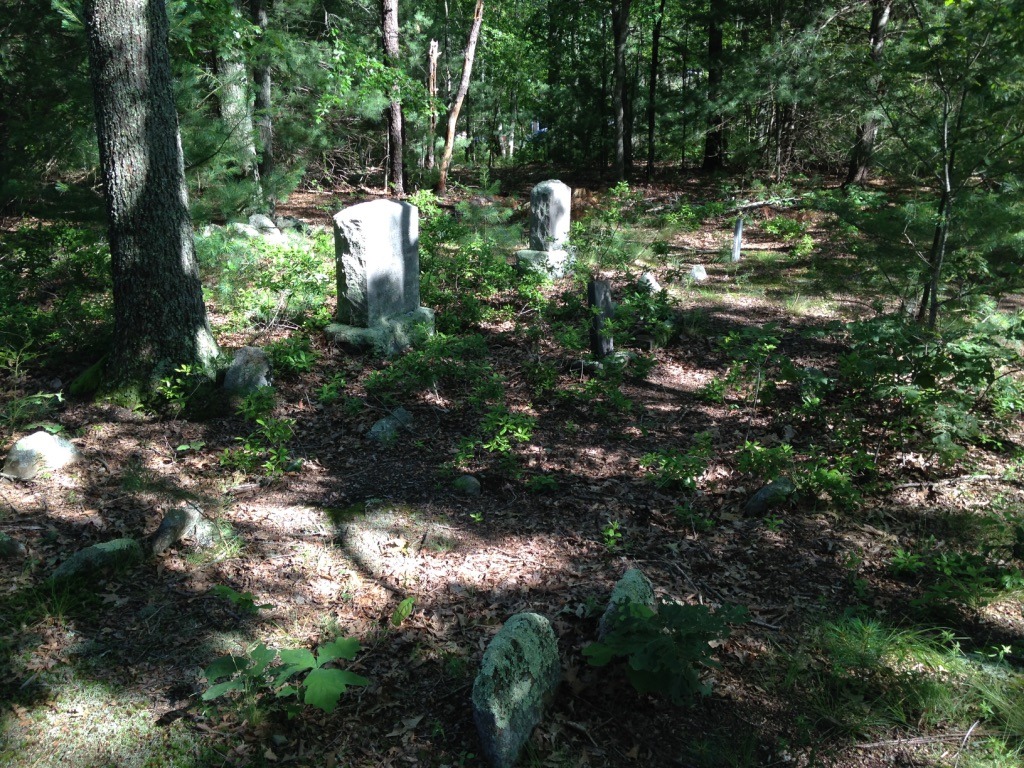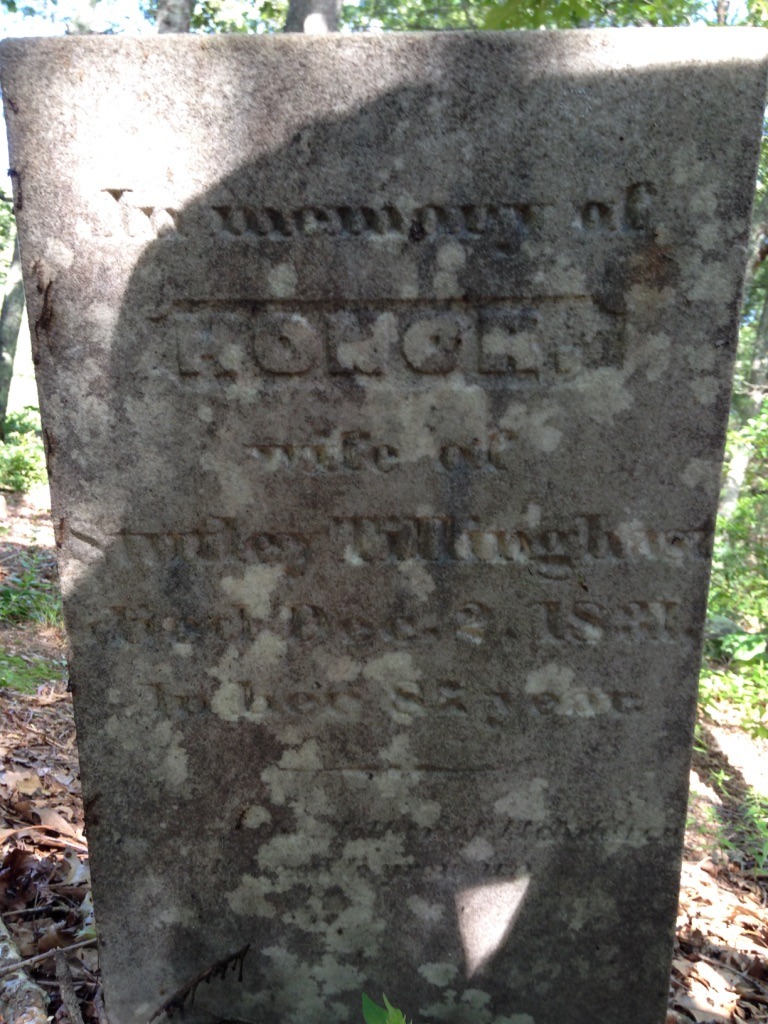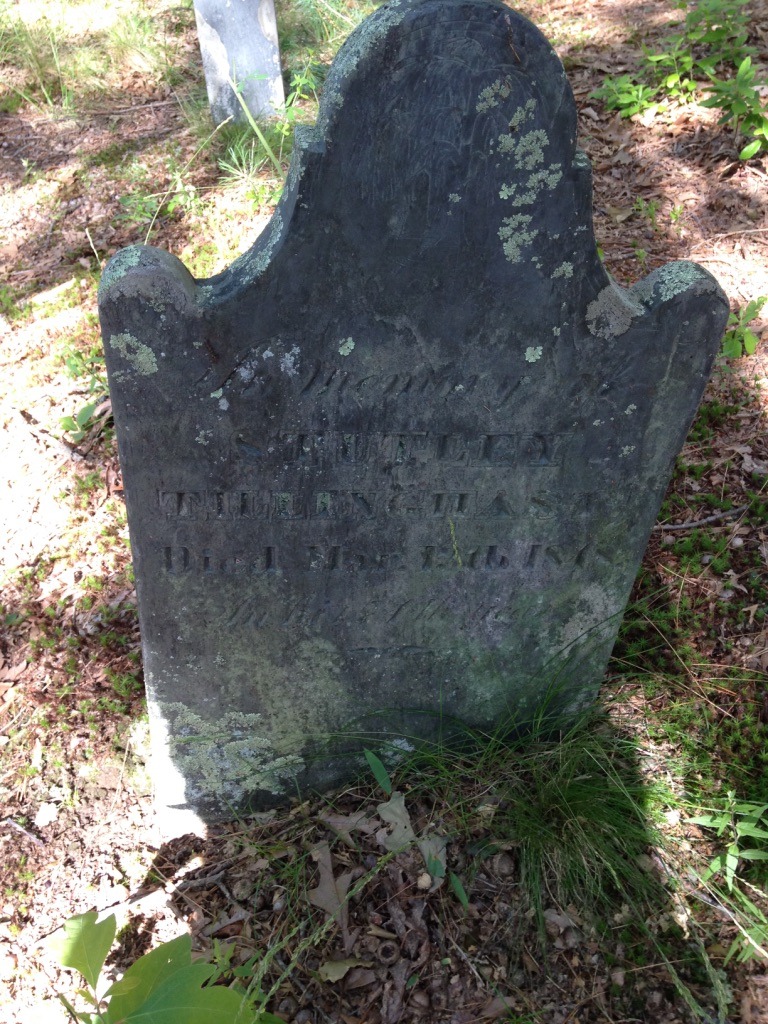An old and easily overlooked cemetery lies tucked away in a neighborhood in Exeter, Rhode Island. It’s small, measuring 50 square feet, and contains just 25 burials. Beneath one of the unmarked stones lies the body of Sarah Tillinghast – a young woman who, in death, was believed to be a vampire.
As the story goes, in 1776, there was a prosperous Exeter farmer by the name of Stukeley. One night, this father of fourteen has a disturbing dream in which half of the trees in his orchard die. The prophetic nature of the dream starts to become clear when his eldest daughter, Sarah, quickly becomes ill and passes away from consumption (now known as tuberculosis). After the burial, the health of another daughter begins to deteriorate in the same way. However, things take a strange turn when this girl claims that the departed Sarah is visiting her every night. During these encounters, Sarah causes her extreme pain by sitting on some part of her body. After his second daughter dies, four more of Stukeley’s children then pass away. Desperation sets in when Stukeley’s wife and another son both start experiencing Sarah’s visitations. At this point, people become suspicious of the dead. Neighbors assist in exhuming the six deceased family members in order to examine the bodies for telltale signs. The remains all appear to be in normal states of decay except for Sarah’s. Although she was the first to die, her body is preserved unlike the others. The neighbors observe that the eyes are open, the hair and fingernails appear to have grown, and fresh blood is found within the heart. This proves to them that Sarah was the cause of the other deaths. To end this threat, they then cut out the heart and burn it on a rock. Afterwards, the corpses are all reinterred. Although Stukeley’s wife recovers, his son is too ill and thus becomes the seventh and final victim.
My summary here comes from an article published in 1888. You can read the entire article online, which includes some additional details regarding the family members, via the link under Sources at the end of this article. Interestingly, if we only had this story, we wouldn’t know where Sarah was buried or even what her last name was. We can thank folklorist Dr. Michael E. Bell for finding the Tillinghast surname along with the location of the family graveyard. He also identified the names of the children as well as their mother, Honor Tillinghast. Beyond that, Dr. Bell uncovered some inconsistencies between the article and the historical record. For example, Sarah died in 1799 (not 1776), she was not the eldest daughter, and it appears that four of the children died that year (as opposed to seven). Given the sensational nature of the event and the time that had elapsed, I suppose it’s not too surprising that the story had transformed a bit by 1888.
I found the cemetery extremely easy to miss. When going north on Forest Hills Drive, it’s on the right side of the street, before reaching Ridge Drive. It’s situated up a small incline, behind some trees. There’s a stone wall around it and a sign saying, “Rhode Island Historical Cemetery Exeter 14.” There’s a gap in the curbing of the road by the cemetery, so that ended up being a helpful cue.
Upon entering the cemetery, I found that many of the gravestones have no visible inscriptions. Sarah’s marker is likely one of these, so we can’t pinpoint her exact grave. However, the headstone for Sarah’s mother, Honor, was easily identifiable. It’s right at the front of the cemetery, by the wall. I also noticed the stone for Sarah’s brother, Stutely Tillinghast.
The story of Sarah Tillinghast is one that shows how fear can grip a community and drive it to desperate actions. Without any treatment for consumption and the continued loss of life, it’s not hard to believe that people were willing to try anything. Coincidentally, the last vampire exhumation in New England (that of Mercy Brown) happened in this same town of Exeter, in a graveyard just a few miles away, almost 100 years later. Sites like the Tillinghast cemetery serve as fascinating links to a past influenced by folklore.
Sources:
Bell, Michael E. Food for the Dead: On the Trail of New England’s Vampires. New York, NY: Carroll & Graf Publishers, 2001.
“Rhode Island Historical Cemeteries – Cemetery Details.” Accessed July 25, 2018. http://rihistoriccemeteries.org/newsearchcemeterydetail.aspx?ceme_no=EX014.
Rider, Sidney S. “The Belief in Vampires in Rhode Island.” Book Notes, no. 7, vol. 5 (March 31, 1888). Available online at https://books.google.com/books?id=aTw8AQAAMAAJ.




























